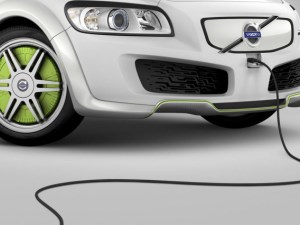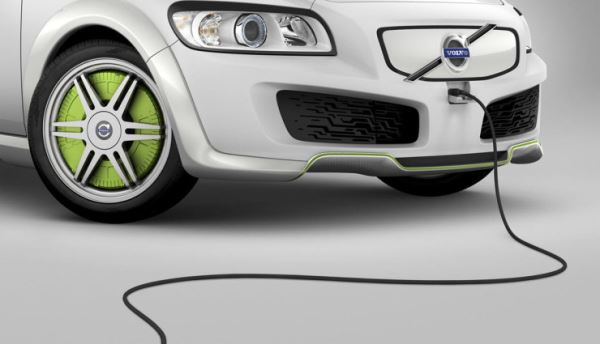Volvo Cars, the Chinese-owned Swedish automaker, has announced plans to make electric cars in China for sale worldwide starting in 2019.
This follows mounting pressure by Beijing for global auto brands to help develop its fledgling electrical vehicle industry as an alternative to fuel powered cars.
The announcement was made at the recent Shanghai Auto Show – one of world’s biggest car shows.
Volvo is one of several automakers with plans to launch electric models in China in line with the Government’s push for more electric vehicles on Chinese roads to help clean up smog-shrouded cities.
Earlier this week General Motors Co. said it will produce a gasoline-electric hybrid version of its Chevrolet Volt in China.
Ford, Volkswagen AG, Nissan Motor Co. and other brands also intend to sell electric models in China, adding to competition in a market that has been dominated by lower-cost Chinese producers.
Volvo said its first pure-electric model will be based on the economy-size CMA platform it shares with Chinese automaker Geely, which bought the Swedish brand from Ford in 2010.
Global export
It said the name, size and other details were yet to be decided.
"It will be for global export. So it is built from the start to work all over the world," said Henrik Green, Volvo's senior vice president for research and development.
Volvo has three factories in China. In 2015 it became the first automaker to export Chinese-made cars to the United States.
Chinese buyers have shown little enthusiasm for electric cars due to concern about cost, reliability and limited range. But Chinese authorities are using a mix of incentives and penalties to push for electric models. Automakers are scrambling to develop models with consumer appeal.
"It's clear that China wants to take a leading role globally in terms of the regulatory environment and electrification," said David Schoch, Ford's president for the Asia-Pacific.
Models on display at Auto Shanghai 2017, the global industry's biggest marketing event of the year, reflect the conflict between Beijing's ambitions for environmentally friendly cars and Chinese consumers' love of hulking, fuel-hungry SUVs.
Electric muscle cars
Nearly every automaker had on display at least one electric concept vehicle, if not a market-ready model. They range from family-friendly SUVs to futuristic-looking, premium-priced electric muscle cars from Chinese startups such as NextEV and Qiantu.
South Korea's Kia Motors Co. debuted an SUV-inspired crossover, the K2 Cross, designed for the Chinese market.
GM said its Velite 5 hybrid will be sold by Buick, which has modest sales elsewhere but is GM's main brand in China.
Earlier this week Volkwagen AG announced plans to launch a pure-electric car in China next year with a state-owned partner. It is to be the first in a full range of pure-electric vehicles for China.
Ford announced plans earlier to manufacture a hybrid sedan, the Mondeo Energi, with a state-owned Chinese partner, Chang'an Automobile Co. It is due to go on sale next year.
Unable to meet current targets
Chinese regulators jolted the industry by proposing a requirement that electrics account for at least 8 percent of each brand's production by next year, rising to 10 percent in 2019 and 12 percent in 2020. Automakers say they may be unable to meet those targets and regulators have suggested they might be reduced or postponed.
The government is expanding China's network of charging stations to reduce "range anxiety," or buyers' fear of running out of power.
The Cabinet's planning agency announced a goal in February of having 100,000 public charging stations and 800,000 private stations operating by the end of this year.
Electric cars also are exempt from sales tax and license plate quotas Beijing, Shanghai and other cities use to curb congestion and smog.
Volvo hopes to sell a total of 1 million electric and gasoline-electric hybrid vehicles by 2025.


